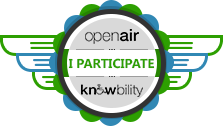I usually end the year by exercising my reflection skills. I find it very powerful to reflect about how my life has gotten better during the last year and to write these down.
I find reflecting on how things have gotten better makes me be more appreciative of my accomplishments.
Many of my accomplishments happen at a very slow rate. In fact, at a much, much slower than I would like.
By practicing things I want to accomplish over and over, I do see progress. My brain does eventually reorganize around a habit after I have practiced it over and over.
I find that sometimes that forward progress is easy to miss or sometimes its easy for me to take the end result for granted when it finally happens because I can finally do it and its just suddenly there.
So remembering where I was at the beginning of the year and how my life and my functionality has gotten better provides useful perspective and good feelings about my persistence and my hard work. I am still getting better.
Here are a few of the accomplishments in developing new brain patterns (or what I refer to as continued rehab) that I have had this year:
–I am driving my own car now which means more freedom for me. I also no longer need to schedule sharing a car with my husband which has made my life as a mom to our son much easier. I have the car when I need it and I know that what I put in the car for our activities will be there.
–Being comfortable on some of Austin’s bridges and expanding my range are now two of the new challenges I am working on with my driving.
–I am finding time several days a week to work on my eye exercises. I am seeing progress from that. I am finding that there is a shift in my eye-brain connection on my right side. This is the area where my headaches can originate (when I am not able to rest from a cognitively-intense activity before I get a headache). I cannot quite translate the shift into increased function yet, but I can feel that something is changing for the better. My hope is that this shift will eventually lead to new pathways on that side and eventually no headaches.
–I am walking twenty minutes a day and using my arms to exaggerate the motion of going from one side of my brain to the other. I meditate for 20 minutes a day (4 or 5 times a week). The meditation mat “draws me to it” when I am not able to make the time to meditate. Both the exercise and the meditation help me get through the day and make my life better.
Those are some of my reflections on ways my life has improved this year. I do this same reflection in all parts of my life.
What are the new brain patterns you have accomplished in 2013?
Where were you when the year started and where are you now?
How do you feel when you reflect on the changes that are improving?
Read More - The Power of Reflection before welcoming in the New Year




Recent Comments